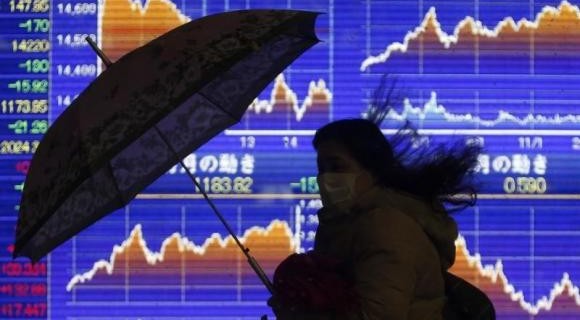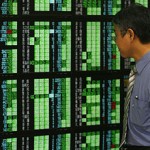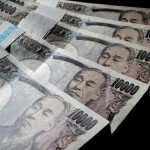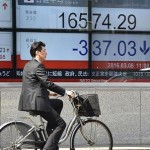Asia follows Wall St. higher, euro probes lows

Asian equities gained on Thursday, lifted by another record-high close on Wall Street, while the euro probed recent lows against the dollar amid speculation the U.S. Federal Reserve is tilting toward tighter monetary policy in light of a stronger economy.
MSCI’s broadest index of Asia-Pacific shares outside Japan .MIAPJ0000PUS rose 0.2 percent.
Tokyo’s Nikkei .N225 gained 0.3 percent, helped by a weaker yen.
The Dow .DJI closed at a record high on Wednesday, boosted by merger news involving an offer by Twenty-First Century Fox Inc (FOXA.O) to buy Time Warner Inc (TWX.N) and strong earnings from blue chips such as Intel Corp InTC.O. [.N]
“Investors had doubts about further gains in the U.S. stock market after momentum shares fell yesterday. We were prepared to see a correction in the U.S. market,” said Takatoshi Itoshima, chief portfolio manager at Commons Asset Management in Tokyo.
“But such M&A and partnership deals have energised sentiment and boosted confidence.”
The dollar was higher against some peers following disappointing economic reports in Europe and comments by Federal Reserve Chair Janet Yellen before this week that suggested rate hikes may come sooner than expected with the economy showing signs of a recovery taking hold.
The dollar traded little changed at 101.56 yen JPY= having gained about 0.4 percent so far this week against the Japanese unit.
The euro EUR= stood at $1.3531, not far from a one-month low of $1.3520 hit the previous day.
Data suggesting a shaky start for Germany in the new quarter and underlying wariness about banking problems in Portugal have kept the euro on the back foot this week.
In focus was whether the euro could hold above the $1.35 threshold, which if breached would take the single currency to a five-month trough.
Kathy Lien, managing director at BK Asset Management, said it was important to recognise fundamental reasons the euro refused to break $1.35, such as U.S. yields in a downtrend, a massive current account surplus, and benefits from the diversification of currency reserves.
“Therefore, without a significant rally in U.S. yields or a strong signal from the ECB that further easing is imminent, a move below $1.35 could be fake-out instead of a breakout,” she wrote in a note to clients.
U.S. Treasury yields, seen as central to the dollar’s appeal in currency markets, were initially higher on Wednesday but later slipped.
In the monetary policy landscape, the euro zone stood in stark contrast to the UK, where expectations are for a rate hike later this year.
Reflecting such a gap in expectations, the euro hovered near 78.88 pence EURGBP=R touched on Wednesday, a level not seen since September 2012.
In commodities, U.S. crude oil extended gains after rising more than $1 the previous day after government data showed a sharp fall in U.S. crude stocks last week.
U.S. crude CLc1 was up 0.3 percent at $101.53 a barrel.
Aluminium held steady after touching a 16-month high on Wednesday in light of upbeat data from top consumer China amid producer cutbacks and eroding inventories.
Benchmark three-month aluminium CMAL3 on the London Metal Exchange was up 0.1 percent at $1,971 a tonne after surging to $1,993 on Wednesday, the highest since March 2013.
Shanghai copper fell to its lowest in a fortnight as jitters over a possible bond default in China’s construction sector triggered a round of profit taking.
The most-traded September copper contract on the Shanghai Futures Exchange SCFcv1 slid 1 percent to 50,050 yuan ($8,100)a tonne in overnight trade. [MET/L]
($1 = 6.2035 Chinese yuan)
(Additional reporting by Ayai Tomisawa in Tokyo; Editing by Eric Meijer and Jacqueline Wong)
Source: Reuters





























